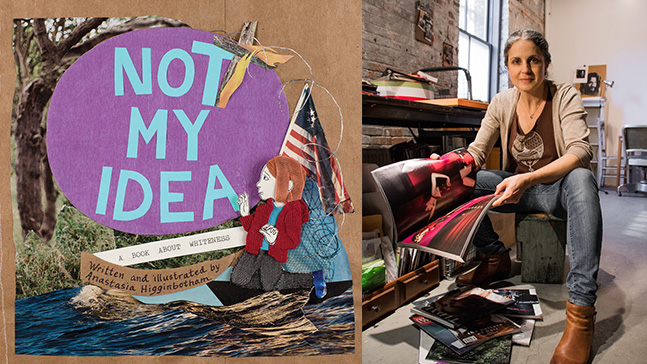Love the Questioner; Love Their Questions: 4 Ways to Meet Kids’ Curiosity About Injustice by Anastasia Higginbotham, Author of Not My Idea: A Book About Whiteness

Not My Idea: A Book about Whiteness
Hardcover
$13.51
$18.95
Not My Idea: A Book about Whiteness
Hardcover
$13.51
$18.95
Know what I don’t love about parenting? Pleading with my kids to eat or put on a coat. But come to me with a question like “Why’d that policeman knock that girl down on the sidewalk and put his knee on her back?”—and my world comes into focus. Not because I know the answer, but because that’s a really good question.
Know what I don’t love about parenting? Pleading with my kids to eat or put on a coat. But come to me with a question like “Why’d that policeman knock that girl down on the sidewalk and put his knee on her back?”—and my world comes into focus. Not because I know the answer, but because that’s a really good question.
Child, you have my full attention.
Whether you relish this part of parenting as I do, or prefer the daily grind, here are some tips for how to navigate the rough stuff.
Buy time and say why.
If a question catches you off guard and you need a minute, say so: “This is important and I want to tell you the truth instead of adding to any confusion.” Let your child know: “I’ll be ready to talk by morning/by the end of the school day/by bedtime tomorrow.” Then be accountable. Check your facts. You bring it up first.
Focus on what you do know.
You don’t have to know everything about everything before you begin a conversation or stay present in the one your child just started. Do your research and read a book together later. For now, tune in to what’s immediately, always available to you: feelings in your body, emotions coursing through you. “I felt sick seeing that,” I might say, in response to a question like the one above. “It made me clutch at my stomach and feel angry, scared, and sad. I wanted to reach through my computer screen and pull him off of her.”
Prepare a child—don’t just “protect” them.
It’s neither wise nor safe to let kids go around with a false sense of security and illusions about how the world actually works. Families of color, particularly Black families and families raising Black children, have been addressing racial injustice and other crimes against our human family forever. Knowing what’s up is protection. Prepare a kid to meet life as it is so they can have a conscious impact on situations that call on them to be alert and take action, on their own or someone else’s behalf.
Embrace hard questions and curiosity about so-called dangerous topics.
Race is just one of (too) many experiences of injustice we need to help our kids process. Make way for all of the curiosities to come through. Be open about your own questions, confusion, and upset at what’s going on in your immediate environment and in terms of dangerous behavior happening right now on a national and global scale.
Kids don’t necessarily expect us to have all the answers. But we can (and must) show them that we are fully engaged with the questions and, most especially, with the beloved questioner.
Anastasia Higginbotham in the creator of the Ordinary Terrible Things series of books for children. The latest is Not My Idea: A Book About Whiteness, which publishes on September 4 from Dottir Press.